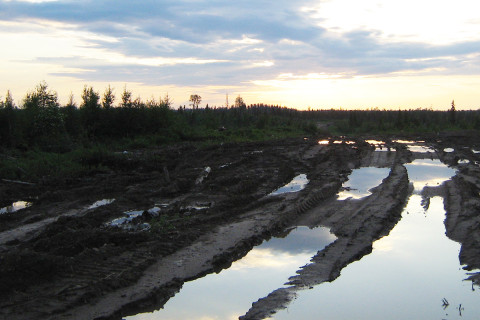New study shows a frontier between sustainable forest management discourses and forestry practices in Russia.
With 20% of the world’s forests, Russia has global forest-related potential in bioeconomy development, biodiversity conservation and climate change mitigation. However, unsustainable forest management based on wood mining – vast clear-cut harvesting in wild forests – leads to forest degradation and reduces this potential. Published in the special issue Global Forest Environmental Frontier of Ambio, a new study shows how environmental NGOs and forest companies collaborate and position the problems of forest resource depletion and wild forest loss in Russia.
The study is based on long term participant observations, policy documents and literature analysis which have been cross-checked by key-informant interviews. The study focuses on constructing and analysing two intertwined forest discourses driven by a coalition of forest companies and environmental NGOs. The first discourse is the idea to develop a Scandinavian model of intensive forest management in secondary forests, which is positioned as a pathway towards sustained yield in managed forests, and conservation of wild forests. The second discourse is related to a category of intact forest landscapes – the protection of the last large unfragmented wild forests and related biodiversity. The study demonstrates how these two discourses have been integrated into policy debates, institutions and practices of forestry and nature conservation, including government regulation and voluntary standards of non-state forest certification, from the 1990s to the present.
Interestingly, in Russia, the development of a Scandinavian model of intensive forestry is advocated by a coalition of environmental NGOs and forest companies as sustainable forest management. While in European countries, forest environmental policy debate tends to criticize the existing Scandinavian model of intensive forestry as unsustainable and leading to overexploitation and biodiversity loss. In European countries, alternative sustainable forest management models, including continuous cover forestry, are currently being developed. However, similar ideas have not been integrated into forest policy debates in Russia so far.
In Russia, the exclusion of intact forest landscapes from forestry, driven by market requirements, is not compensated by the development of sustainable forestry in managed forests. The lack of incentives for forest companies – concession holders – to invest in sustainable forest management in state-owned forests is compared with tenants’ lack of motivation to make expensive high-quality repairs in a rented apartment. A recently appeared alternative discourse on sustainable forest management in Russia is related to the development of forestry on privately-owned abandoned agricultural lands. This discourse is conceptualized by environmental NGOs as a pathway towards forest farming, agroforestry, and forest plantations.
Thus, in Russia, there is a frontier between sustainable forest management discourses and forestry practices, which are still mainly based on wood mining.
Publication: Denis Dobrynin, Natalya Yakusheva Jarlebring, Irmeli Mustalahti, Metodi Sotirov, Elena Kulikova & Eugene Lopatin (2021). The forest environmental frontier in Russia: Between sustainable forest management discourses and ‘wood mining’ practice. Ambio 50, 2138–2152 (2021). http://dx.doi.org/10.1007/s13280-021-01643-6

